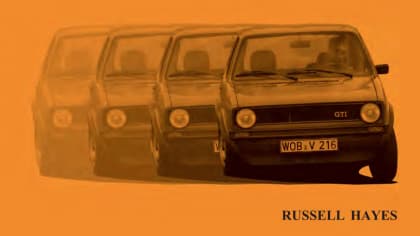HOW TRULY GREEN IS YOUR HYBRID?
This article is from our archives and has not been updated and integrated with our "new" site yet... Even so, it's still awesome - so keep reading!
Published on Thu, Jul 21, 2011
By: The LACar Editorial Staff

Hybrid Scorecard for 2011 Shows Automakers Not Delivering Enough 'High Value' Models
HOT WIRE— The current crop of hybrid vehicles demonstrate automakers know how to provide dramatic fuel savings and pollution reductions, but have yet to fully deliver those benefits, says the Union of Concerned Scientists (UCS).
The organization’s new Hybrid Scorecard, a rating system of how well automakers use hybrid technology, evaluated 34 hybrids for their fuel efficiency, environmental improvement, consumer value, and the “forced features” automakers install that artificially inflate the cost of some models.
“It’s not just the Toyota Prius and everyone else anymore,” said Don Anair, a senior UCS engineer and the scorecard’s author. “Automakers from Ford to Hyundai and Honda to Nissan are using hybrid technology to boost fuel economy and cut pollution without breaking the bank for consumers.”
Anair noted that nine of the 10 top-selling hybrids from January 1 through April get more than 30 miles per gallon (mpg) and score above average for environmental improvement and value.
HOWEVER, only 13 of the 34 hybrids reviewed cut more than 25 percent of the global warming pollution emitted by their conventional vehicle counterpart. The worst offender, the Volkswagen Touareg Hybrid, emits less than 10 percent less, an all-time low on the scorecard.

“Automakers are still producing hybrids that fail to deliver on the technology’s potential to dramatically improve fuel economy,” Anair said. “Their focus on maximizing power over consumer value risks the future of hybrid technology.”
Later this year, the Obama administration will roll out its proposed vehicle efficiency and pollution standards for new vehicles and light trucks built between 2017 and 2025. These standards, which could be as strong as 60 mpg and a 6 percent annual reduction in global warming emissions, hold the key to the future of hybrid technology, Anair said.
“Strong clean car standards would ensure that automakers make the most of hybrid technology to boost fuel economy and cut emissions,” he said.
The Prius remained the top non-luxury model in the scorecard’s environmental improvement category, delivering a more than 40 percent reduction in global warming pollution compared with its closest conventional models. The combination of the Prius’ high fuel economy, good value, and relatively small number of forced features help make it the best-selling hybrid, accounting for about half of all hybrid sales. Other non-luxury models scoring high on environmental improvement included the Ford Fusion Hybrid, Honda Civic Hybrid and Toyota Highlander Hybrid.

In the luxury market, the Lincoln MKZ Hybrid and Lexus CT200h earned top environmental improvement scores. Like the Prius, they cut global warming emissions by more than 40 percent compared to their conventional luxury counterparts. Ford and Lexus were able to accomplish that by downsizing the vehicles’ engines from six to four cylinders to maximize fuel economy, a strategy that resulted in strong value ratings. “Hollow” hybrids, such as the 2009 Saturn Aura and the 2010 Chevy Malibu hybrids that offered little environmental benefits, are fading from the market, but those underperforming models are being replaced by “muscle” hybrids that emphasize power over fuel efficiency. The aforementioned Volkswagen Touareg Hybrid is just one example. UCS also singled out the new Porsche Cayenne Hybrid and BMW’s X6 and 750i ActiveHybrids as among the worst-rated hybrids for environmental improvement. As mentioned in previous Hybrid Scorecards, the cost of many hybrids are bloated by forced features, including premium sound systems, heated seats, and leather trim that inflate the cost without adding to fuel savings or reducing emissions. These additional features, which on average cost more than $2,500, mask the real value of hybrid technology and push cost-conscious hybrid buyers out of the market. “If automakers are serious about selling hybrids and offering fuel efficiency at a fair price, they should ditch forced features,” Anair said. The Lincoln MKZ, a luxury model, and the Hyundai Sonata, a non-luxury hybrid, are available with few or no forced features, he noted, and “there should be a lot more.” The Union of Concerned Scientists is a U.S. science-based nonprofit organization. Founded in 1969, UCS is headquartered in Cambridge, Massachusetts, and also has offices in Berkeley, Chicago and Washington, D.C. For more information about the Union of Concerned Scientists’ Hybrid Scorecard, click here.




